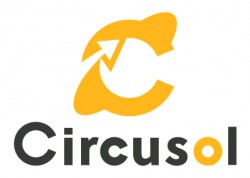CIRCUSOL: Solar power business models towards a circular economy in Europe
The CIRCUSOL project (Circular business models for the solar power industry) is a new European initiative funded by the Horizon 2020 Programme of the European Commission. CIRCUSOL aims to establish solar power as a spearhead sector to demonstrate a path driven by Product-Service System (PSS) business models towards a circular economy in Europe. The project has been recently launched in Brussels where members of the CIRCUSOL consortium participated together in the kick-off meeting. Representatives of the Executive Agency for Small and Medium-sized Enterprises (EASME) of the European Commission took part in the event, a great opportunity to set up the basic procedures and the firsts steps for the success of this new initiative. CIRCUSOL has a total budget of 8,255,590 € and an EU contribution of 7,014,892,76 €. The project will run for the next 4 years with 15 organisations from 7 European countries. Solar power generates nearly 4% (and still growing) of Europe’s electricity demand. The strong growth of the solar photovoltaic (PV) market in Europe is expected to continue. Driven by the national binding 2020 renewable targets and the recent solar tenders, Solar Power Europe foresees that the EU will return to strong growth in the coming years – with a 45% growth rate expected for 2018 and 58% in 2019. Furthermore, recent advancements in energy storage solutions have fueled the growth of PV-connected battery system installations. The momentum is expected to continue, guided by the EU targets to achieve 32% renewables by 2030. As the solar power market booms, so will the volume of discarded products entering the waste stream. The International Renewable Energy Agency (IRENA) estimates 1.7-8 million tonnes of PV panel waste by 2030 and 60-78 million tonnes by 2050 cumulatively. Resource efficiency is a critical success factor for the sustainable growth of the solar power sector. Performance-based, third-party ownership PSS has been widely seen as a key circular economic model to stimulate resource efficiency and reduce waste generation. Through a co-creative approach with end users and the entire value chain, CIRCUSOL will develop two main blocks of a circular PSS model: circular product management with reuse/refurbish/re-manufacture (“second-life”) paths in addition to recycling, and value-added new product services for residential, commercial and utility end users. Five large-scale, real-life demonstrators will be set up in these 3 market segments, in 3 European countries (France, Belgium and Switzerland) to validate market acceptance, business viability and resource efficiency benefits. CIRCUSOL will deliver tangible innovation for the solar power industry with market-validated PSS business models, 2nd-life PV and battery labelling/certification protocols and cost/application analysis, circular design business cases and an info-sharing ICT platform. The results will be exploited in France, Belgium and Switzerland and prepared for replication in other European countries. CIRCUSOL will also deliver verified circular business innovation methodologies for broader use by other industries, sustainability professionals and academia, plus evidence-based knowledge in circular economy implementation for policymakers. Altogether, CIRCUSOL will contribute to a more resource-efficient Europe, while reducing greenhouse gas emissions and creating new business opportunities and jobs. During the kick-off celebrated in Brussels the partners participated in a co-creation session to reach a shared understanding of the current value networks of PVs and EV batteries. This input will guide the development of the initial circular business model design framework taking into account all the stakeholders of the solar power value network.
Keywords
solar power, circular economy, sustainable business models, energy transition
Countries
Belgium, Switzerland, Germany, Spain, France, Lithuania, Sweden



